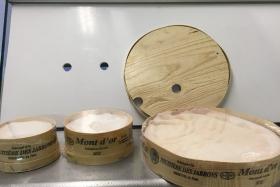Study finds carcinogenic substances in BCH bak kwa; SFA says no health risk posed
A recent finding by the Hong Kong Consumer Council revealed that nearly half of 30 dried meat snack samples had contaminants in them – among them was Bee Cheng Hiang's Barbecued Beef Bak Kwa.
The consumer watchdog revealed its findings on Wednesday (March 15), stating it found potentially carcinogenic contaminant Polycyclic Aromatic Hydrocarbons (PAHs) in 13 of the tested samples, reported the South China Morning Post.
According to the Singapore Food Agency's (SFA) website, PAHs are "formed when fat and juices from meat grilled directly over a heated surface or open fire drips onto the surface or fire, causing flames and smoke, [and] are found in the smoke, which then settles on the surface of the meat."
The council found that nine pork snacks and four beef jerky snacks had levels of PAHs ranging from 0.6mcg/kg to 18.2mcg/kg.
Among those snacks, the barbecued beef bak kwa from Bee Cheng Hiang had the highest amount of four PAHs at 18.2mcg/kg, which exceeds the EU limit of 12mcg/kg by some 50 per cent.
The Hong Kong Centre for Food Safety, however, assessed and advised that the detected PAHs have little impact on public health.
In response to queries, Bee Cheng Hiang assured that their products are “in compliance with the Singapore Food Agency food requirements”.
Responding to TNP, SFA said it was aware of the recent reports from Hong Kong on bak kwa containing containing high levels of PAHs.
It added: "The Singapore Food Agency has conducted an assessment and found that the levels reported pose no food safety concerns as bak kwa is usually consumed occasionally and not in large quantities on a regular basis."
The agency added that PAHs in grilled and processed meat "will not pose a health risk when consumed in moderation", and that there is "no cause for concern for consumers with a balanced and varied diet".
Other products reported by the council to have contaminants include crispy sliced pork from popular Thai brand Lim Jing Hieng.
It was found to contain 0.95mcg/kg of furazolidone metabolite, an antimicrobial agent commonly used in veterinary medicine, and banned in different regions including the European Union, the United States and China.
But Hong Kong’s Centre for Food Safety said that it did not detect any issues with the samples in question, according to the South China Morning Post.
Get The New Paper on your phone with the free TNP app. Download from the Apple App Store or Google Play Store now


